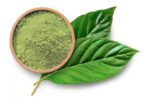By Paul Kemp | Natural News | October 21, 2014 4:35pm EST
Ever since the Prohibition Era, the U.S government has been quick in outlawing specific compounds that may have actual medical uses. In-depth objective studies are rarely implemented for anything controversial. One of the first of pain relief chemicals to fall under scrutiny was marijuana. Making marijuana illegal was largely done for commercial reasons due to financial and political influence from the Hearst and Dupont Foundations.
What is Kratom?
Kratom, technically termed mitragyna speciosa is an organic chemical that is well-known in Southeast Asia for its medicinal properties. Kratom is also used for recreational self-medication in the same region, but is now becoming popular in the United States as an alternate opiate substitute.
The actual plant is a member of the coffee bean family, similar to cocaine and cocoa leaves, and comes from a large tree that grows primarily in Thailand. However, the plant has not been legal in Thailand for over 70 years because it is competitive with the Thai pharmaceutical industry opiate products, very similar to opiates and marijuana resistance in the U.S.
How Does Kratom Interact?
Very few in-depth studies have been performed in the United States addressing addictive properties, and the possibility exists that very few will occur. The U.S. federal government tends to ban substances first or move very slowly, then testing later if there is enough public outcry or private funding available for testing.
Positive Outcome Possibilities and Side Effects
Many current drug addicts view Kratom as a viable alternative to methamphetamine and heroin addiction. Some addicts have not found methadone to be truly effective, often resulting in continuing addiction to a new substance, including psychotic effects in some patients.
Kratom can also be used in a variety of ways, similar to marijuana. Alternative ingestion can be done via liquid brews and foods that include the primary active ingredient that is currently not regulated by the U.S. Food and Drug Administration, similar to other nootropic “smart drug” products. With the new focus being generated by the legalization of marijuana and industrial hemp, the possibility of legal Kratom is present, especially in light of the fact that the Thai government is also considering making the substance legal.
But, will Kratom prove to be a pharmaceutical friend or foe? Unless the studies are comprehensive, we will not know. The question is, will there be a rush to totally banning its use before solid aggregate research can be completed. The best situation for the time being is discussing using the compounds with your physician before beginning its use. Should you decide to use Kratom, it is best to educate yourself about the compound itself and the recommended dosage required for the different strains of it on the market.
Sources for this article include:




